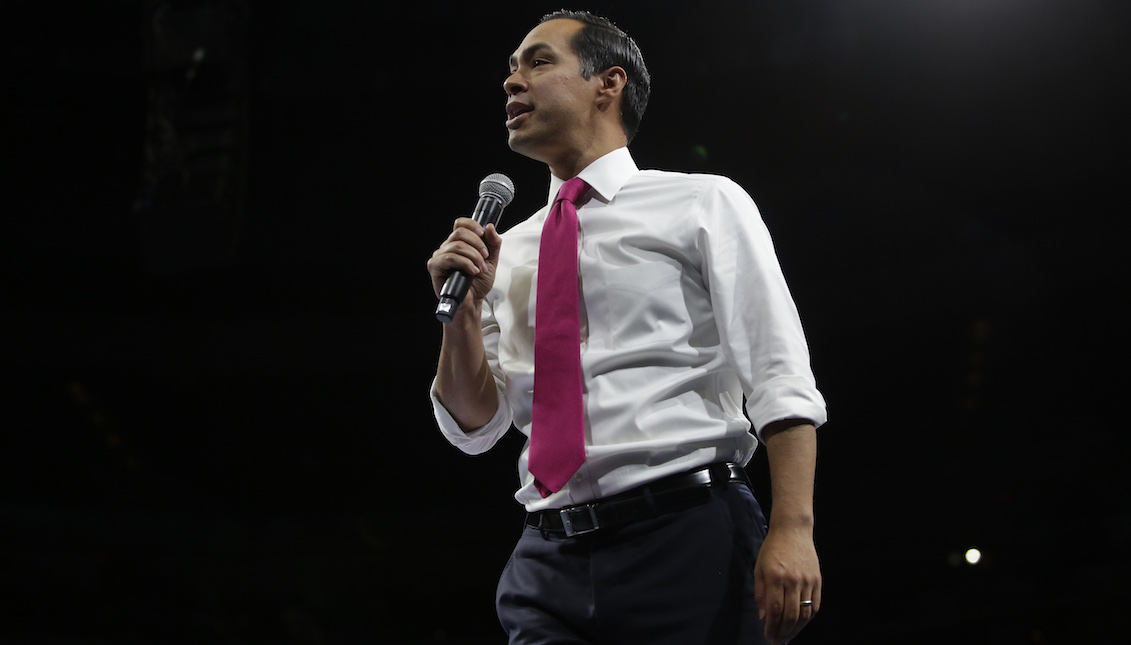
Julián Castro’s True Achievement
Despite not having been able to qualify for the November debate in the Democratic primary, the only Latino candidate in the race made a radical difference with…
Since deciding to run for president, Julian Castro has proven to be a different politician.
Leaving aside the fact that he is the only Latino among the huge number of people who threw their hat in the ring for the Democratic nomination, Castro has distinguished himself for his criticism of American political protocols.
While his colleagues were on a pilgrimage to Iowa once their candidacy was announced, the former secretary of housing traveled first of all to Puerto Rico; he has outlined coherent plans in support of free trade, a route to green energy, the right to abortion and strengthening rights to the LGBTQ community.
From the beginning, Castro was the first to unveil a comprehensive immigration plan, not only from experience as a second-generation immigrant but focusing on comprehensive immigration reform, where “cruelty is not the solution,” which includes border security but “intelligently and humanely,” as he said in his inaugural campaign speech.
With the support of the entire community who showed up, we were able to convince ICE to remove José’s ankle bracelet—which he said made him feel like a prisoner.
— Julián Castro (@JulianCastro) November 12, 2019
Thank you to the Iowa City Catholic Workers and @iowacci for inviting me to be a part of this incredible today. pic.twitter.com/3Ku3yvfjNr
Similarly, and after touring almost the entire country with his plan, Castro demonstrated his particular way of doing things, such as buying a television ad on the Fox network to directly blame the president for the shooting against the Hispanic community in El Paso.
Only in recent weeks, the candidate unveiled his comprehensive disability plan, which his campaign called "the most ambitious and intersectional agenda this cycle."
According to The Hill, the plan includes investments in special education and infrastructure, the expansion of affordable housing, development of evacuation plans during natural disasters, and a section on “Dignity for people with disabilities”.
Castro proposes to put an end to “the institutionalization and defending the landmark Olmstead v. L.C decision, which held that mentally disabled people have the right to live in communities rather than institutions if professionals determine it to be appropriate,” the media continues.
As president, I’ll fight to empower and improve the lives of individuals with disabilities—in housing, jobs, education, accessibility, and elsewhere.
— Julián Castro (@JulianCastro) November 11, 2019
Thank you to the Iowa Democrats’ Disability Caucus for having me at a forum focused on the needs of those with disabilities. pic.twitter.com/KZfJtRQOPv
However, Castro’s campaign has been one of the most hampered among all the candidates.
RELATED CONTENT
At the end of October, Castro announced that his campaign was at risk of coming to an end due to lack of funds, and his position in the polls - where he has 2% approval - did not allow him to qualify for the November Democratic debate.
His experience in the campaign has made him critical of the way politics is done in the country, declaring among other things that the tradition of the first nominating states in the primary “does not reflect the diversity of the nation,” and suggested this week reordering the Democratic primary voting schedule so that the most diverse states are allowed to vote first.
‘Iowa and New Hampshire simply do not reflect the diversity of the Democratic Party or of our country’ — @JulianCastro believes there’s a racial problem in the presidential primary pic.twitter.com/P3TsbaBjA7
— NowThis (@nowthisnews) November 14, 2019
Even so, it seems that the mediation of American politics continues to overlook what really matters in the country.
Jennifer Medina, a writer for the New York Times, raises the issue in another way:
“How could Democrats forgo the symbolic significance of a Latino candidate onstage, especially when Latinos are expected to be the largest ethnic voting bloc come November 2020?”
Perhaps the country is simply not prepared for Julián Castro and the vision of a true intersectional future, inclusive and that represents us all.










LEAVE A COMMENT: